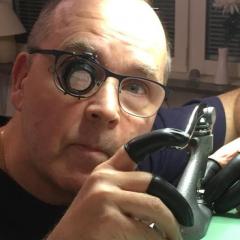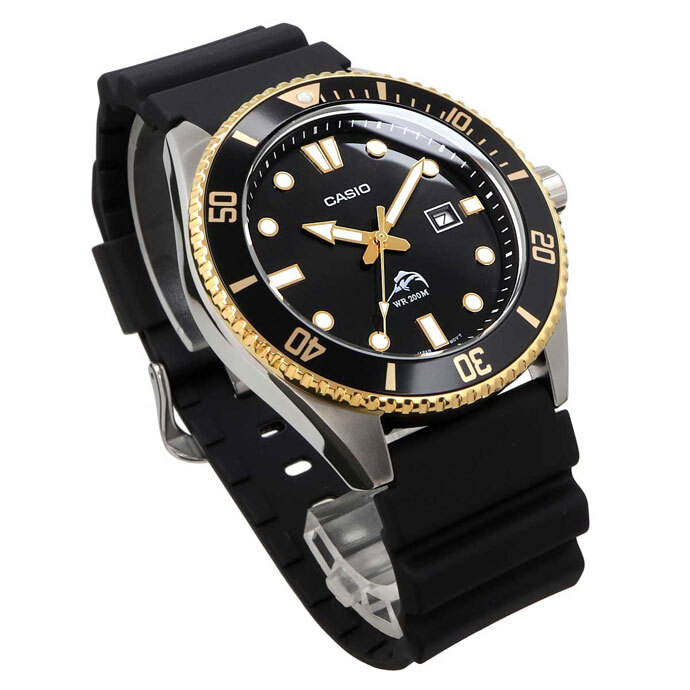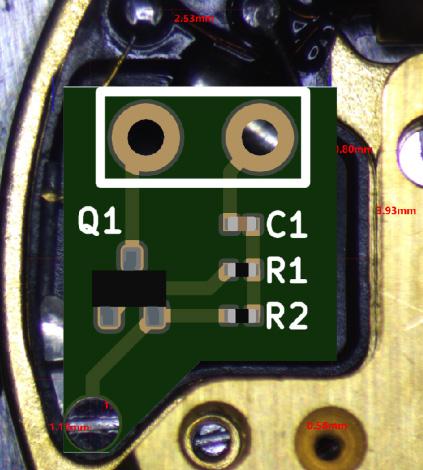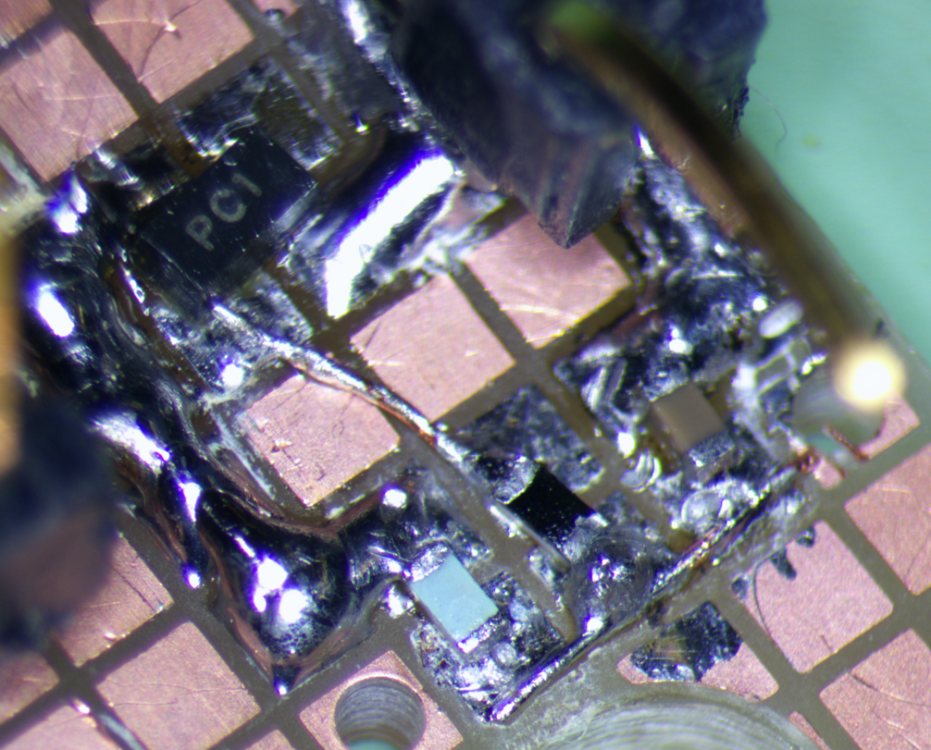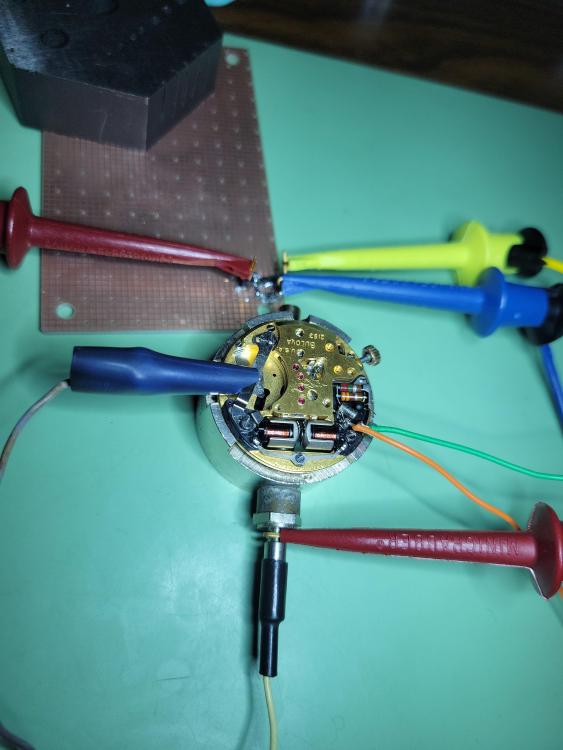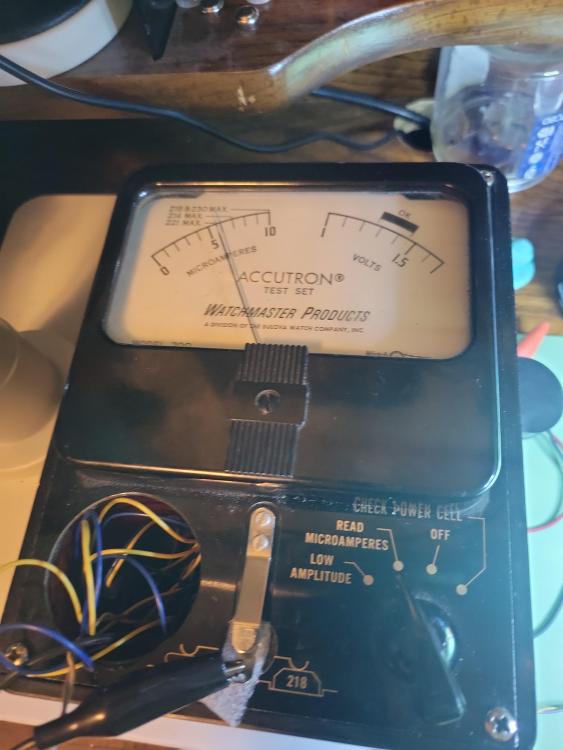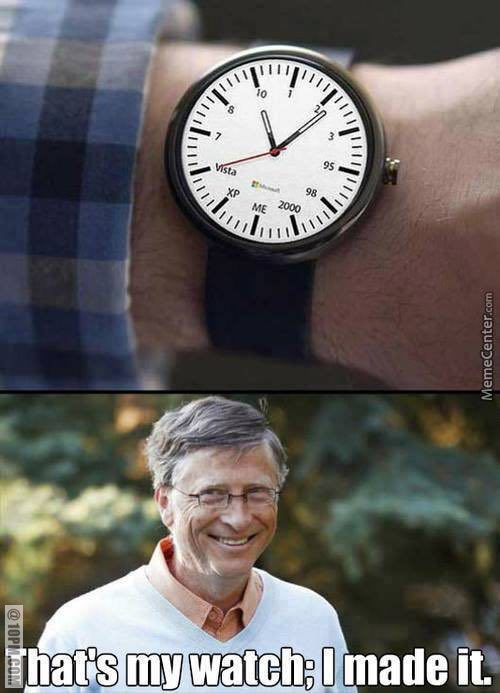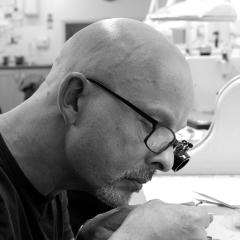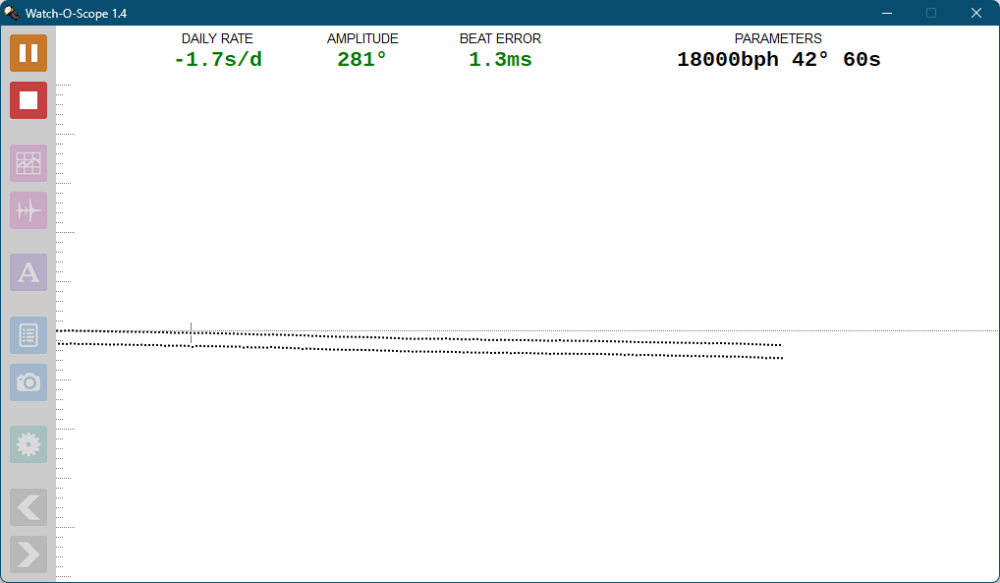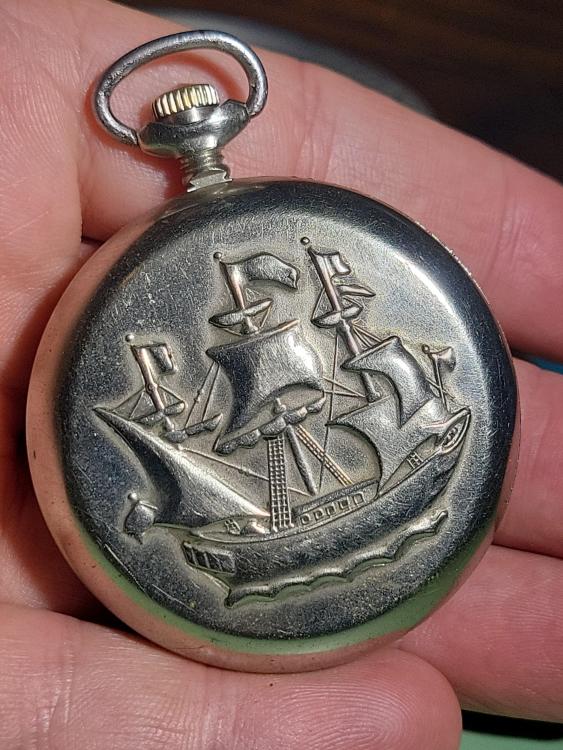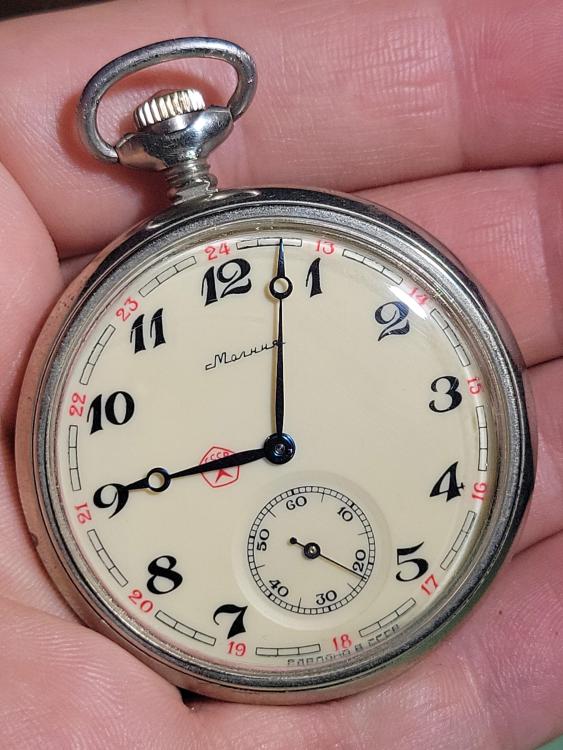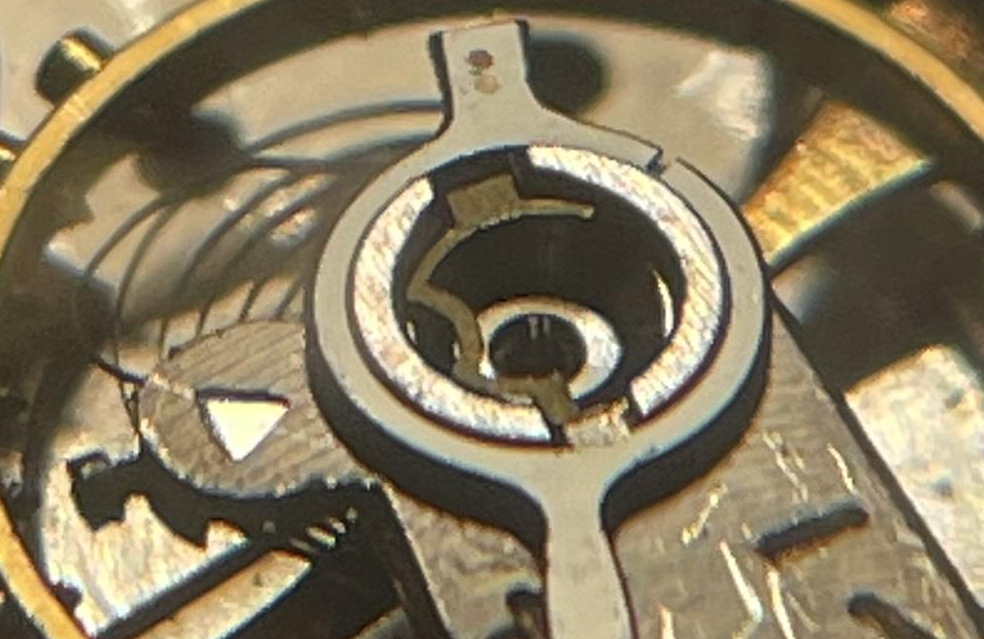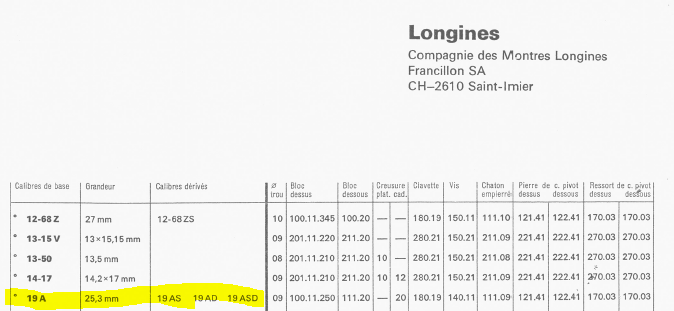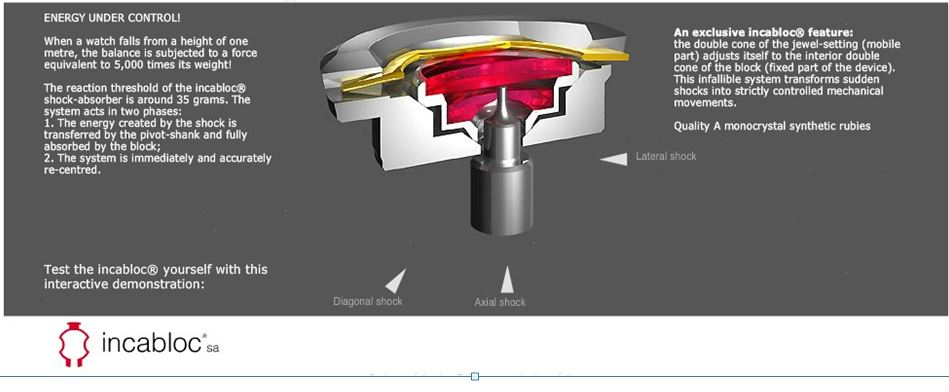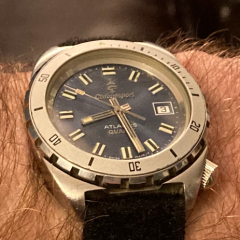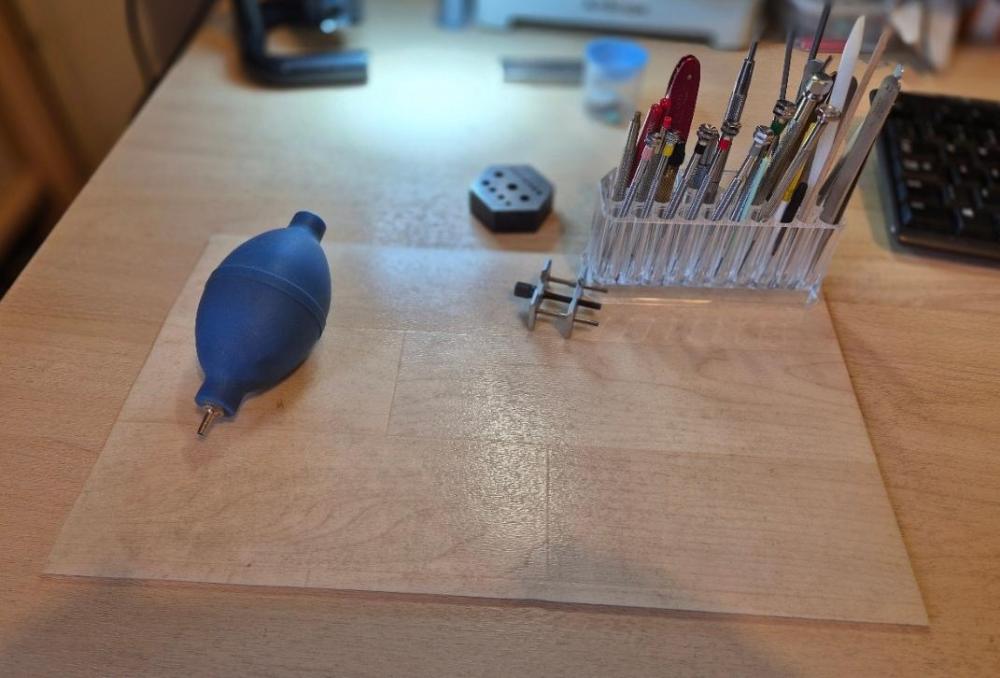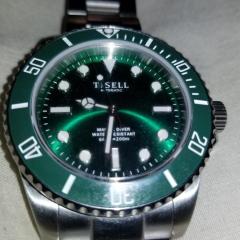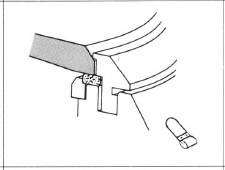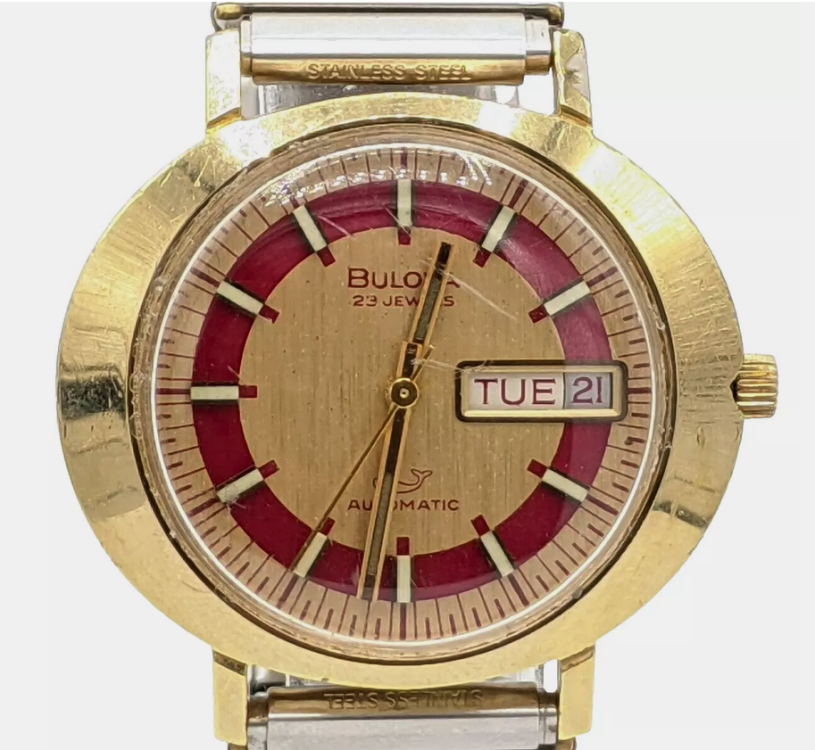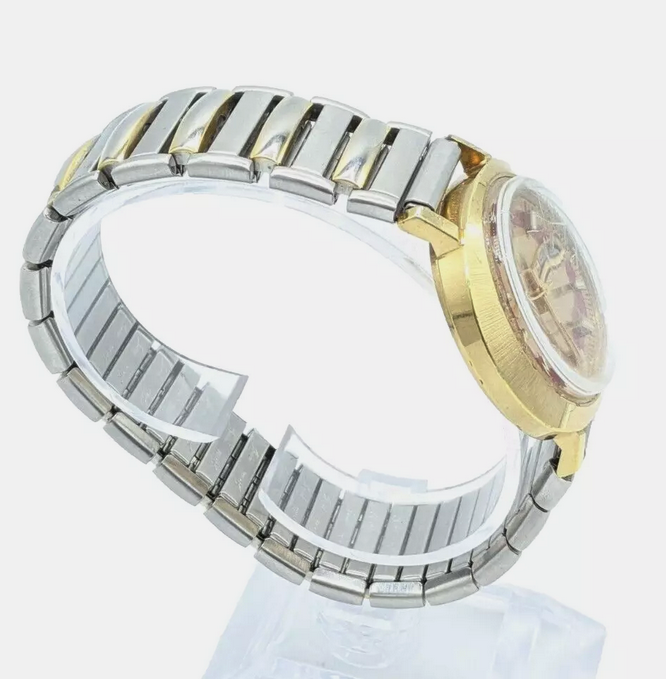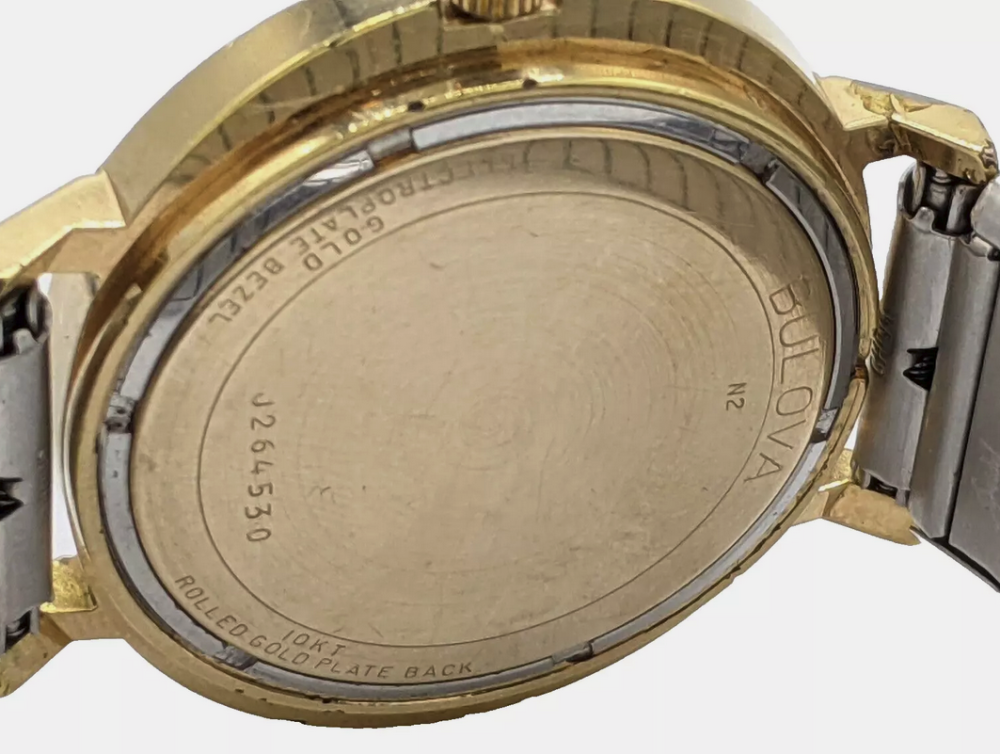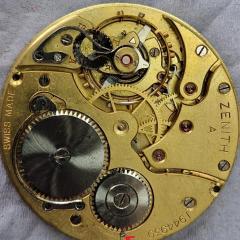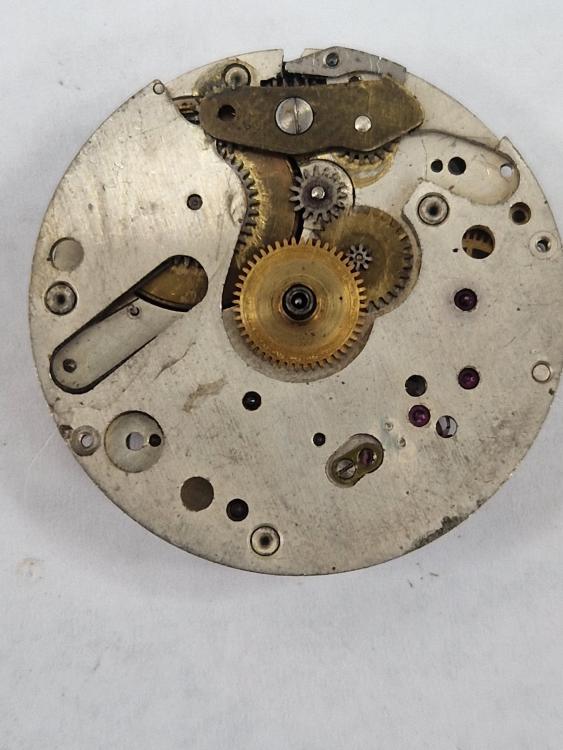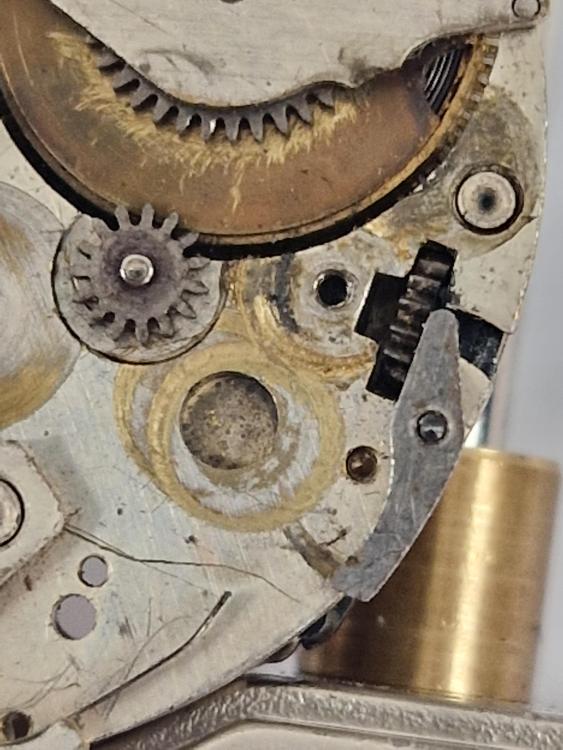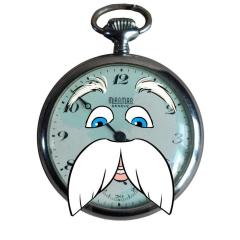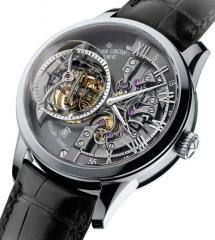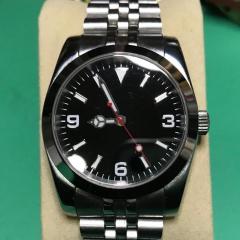Leaderboard
Popular Content
Showing content with the highest reputation since 04/11/24 in all areas
-
Casio MDV106G-1AV Gold DURO200 I'm going on a long family vacation to Southeast Asia this summer and wanted a cheap but reliable beater in case I lose it, break it, or get robbed. Quartz movements aren't my thing, but I'm not dogmatic and this was a cheap option. A few years ago you could buy it for under $50, but since this particular model with the Marlin fish has been discontinued, you have to pay about double that, but I still thought it was acceptable. Sure, I could wear one of my cheap and very reliable Vostok Amphibian divers watches, but I have a personal relationship with them (having put a lot of work into them) and don't want to risk losing them. Strangely, I feel very excited. Maybe because I haven't bought a brand-new watch in over 10 years! The only downside is that this is the watch Bill Gates has been seen wearing, and I'm not exactly a fanboy of Bill Gates. Anyway, who cares!?6 points
-
Well, the first attempt was a wash because I bought 22nF capacitors instead of 220nF. So after a second order, I soldered everything onto my SMD breadbaord. I de-soldered the electronics from a 218 movement that I had previous tested and hooked my little circuit up in its place, and hooked the whole thing up to 1.4v from my power supply. ...and realized I'd gotten the pinout of the transistor wrong. After I removed and re-soldered it in the correct orientation, I realized I had the connections to the coils backwards. Once I fixed that, THE FORK STARTED VIBRATING! I could not have been more excited!!! If you haven't guessed, my somewhat evil plan is to make a surface-mount PCB replacement for the resistor, capacitor, and transistor in the 218s. Why? Because why not? The transistor is in a SOT-523 package, the resistors and capacitor are 0402 (1005 metric) packages. I have to redo the circuit to get the transistor pinout correct, but here's what I have in mind:6 points
-
I've had a quick bite to eat and would like to crack on with this if thats ok, i know its not watchstuff but its important, if even just one of you can avoid this happening to either yourself or a family member then it's 100 % worth my time and getting it out of my system really helps me as well and hopefully spurs some of you to make sure you and your family are ok. And please anyone that can add some input from knowledge or experience then just jump on. The stroke mum had is known as an Ischemic stroke of which there are more than one kind , mum's was an embolic stroke , these are caused by blood clots ( wandering clots or embolisms ) another type is a thrombotic clot that can block main arteries that may supply blood flow to the brain . From what i gather thrombotic clots are stationary, these are the type that cause pain and restrict blood flow in the particular area where they form ie. leg , chest. Mum's embolism travelled to her brain , so she had no experience of pain and no warning until it was too late. Many things play a part of clot formation, we can't change our genetics but we can edge our bets by leading a healthy lifestyle. My mum is 87 5' 1" and weighs around 55 kg, has always been extremely fit, goes out nearly every day into her village or the next town sometimes a town 40 miles away on the bus if she's buying presents. She eats healthy as far as mainstream guidance tells folk, fish chicken no red meat, fruit veg nuts etc, all the usual stuff thats considered healthy and no real crap like pastries sweets . Has never smoked and has never really drunk alcohol, but she is a stress head and worries about everybody and things she really does not need to. This is me to a tee, i worry about everyone and rarely myself. Being in hospital we've discovered she has an irregular heartbeat ( caused by the stroke ? the doctors seem to think not ) . Atrial Fibrillation, doctors have attributed the stroke cause to her irregular heartbeat, apparently clots can form in the upper chambers of the heart were irregularity occurs, brake up and become mobile to cause damage. Those are just one type of stroke, hemorrhagic stroke (less common than an ischemic stroke ) caused by a bleed in the brain generally thought of as more serious as not only is the brain being starved the bleed itself can exert pressure on the brain. Its important to know the difference which cannot be ascertained until a scan is carried out, and the treatment is different. Common thinking was to give someone experiencing a heartattack an aspirin to improve blood flow, this can actually worsen the effects of a bleed on the brain. There are lots of causes for a stroke, genetics for sure like i said, but getting the most from your genetics and nursing the weak areas by living healthily will not only extend our time but give us more quality time that we have left ( change just one thing if thats all you can manage for now ). Regular visits to see the quack will pick up warning signs early , just one visit for an mot might save not only your life but wont destroy the lives of your loved ones. Anyone here in their 50s not had an mot medical check up yet ? Er cough er maybe its time to make sure everything is working as it should, and not just your heart ( dont clench when the doc stretches on those latex gloves, and definitely dont have a smile on your face when you stand up straight again ) . A stroke can strike anyone of any age and of any lifestyle if there is something underlying going unnoticed, make that call and find out how you really are with your health. Love you people x Absolutely Richard, i cant help my mum if I'm not well myself. I have a habit of keeping going and draining my batteries too low ( maybe i need a wind up key in my back ). The Mrs cant figure out i get by with hardly any sleep or rest, calls me a robot with emotions. Thank you , very kind of you Del. Thank you rehajm Thanks OH, i know i can be a pain in the bum and have you watch over my antics but that means a lot. Thanks MSB , she'll keep kicking as long as I'm around , thank you. Thanks WW, i will make sure to do that, my time here is not done by a long chalk. Thanks Hector i take note of everything you say and completely agree, i cant do it all myself and my mum wouldn't want me to. Bit difficult to let go of the reigns though. Thanks Guy, i appreciate those comments . Thanks Nev, my mum makes it easy she is very resilient and very independent, she will get all the care she needs and wants thank you. Thanks so much , my mum and me aren't going anywhere, the forum will have to manage with a diluted version of me for a while. Thanks Steven really kind of you to say that, thank you for the times you have kept me straight, i dont forget that. Thanks Tom yep i know where you are at , very much appreciated. Thanks matey, at the rate my mum goes i won't be gone for very long. Thanks Steve i appreciate that. Thanks Ross i really appreciate that. If i helped you in any way then that makes me happy. I know we are not supposed to have favourites among family friends etc. But i think you are one of mine so just dont tell anyone Thanks Jon , there are others in my family, but i have always been the doggedly determined one that likes to get things done. Thanks Mike, thats really nice of you to say so.5 points
-
Hello forum, i have some things i would like to say today if thats ok. Being here is something of a sanctuary for me, talking about something that i love doing with folk that i have become fond of ( yes quite surprisingly under all that craziness and verbal brawn lays a soft heart of gold ). I imagine that the same can be said by many of you , a certain number of us are here daily both learning and offering any advice that we are able to. Quoting our experiences both successful and failures for others to learn from. For me at the moment just making this post is a distraction from my current bubble but also from the world around me for various reasons. Its a place not just for teaching and learning but to make others laugh and smile and be part of a community. I would even go so far as to say we are a team, supporting and encouraging each other when needed and when we are down, my own situation with my mum being a perfect example of everyone's kindness. Thats the soppy bit out of the way . So my mum has been moved to a brand new facility after making amazing progress with her speech and word recognition in hospital ( poor mum has had to suffer my company and my teaching to the full extent of her visiting hours barring one day off for me that my sister insisted upon ) her consultant calls my mum his medical miracle , and will be starting her intensive speech rehab today after her initial assessment. Things I've learned about having a stroke, and I'd really like everyone to take note of the causes and outcomes of having one. Please do your own research I am a joiner and not a doctor , i just want to make everyone aware and just get checked out if you notice anything in yourself that you are unsure about, any risk of having one can be reduced with either medical intervention or/and a change of lifestyle ( which would be my own preference in an attempt to limit my risk, something i have now noticed in myself ). I do know a few of you here have experience but this is what i have become aware of and how it has affected my mum and me. First i want to touch on the effects of a stroke, not only to the sufferer but to the whole family, we all know how dementia affects lives. A stroke effecting language is almost instant non aggressive dementia. Like being in a foreign country where you can no longer read, write or speak to someone without some form of very basic sign language gesturing ( when annoyed i think everyone understands the middle finger ). But a stroke can affect movement ( fortunately my mum is virtually unaffected with her mobility, the nurses can't believe she is 87 and just had a stroke, she's like bloody Supergran, in fact she is a great great grandmother to 2 toddlers ) . Improvement after a stroke carries on for years afterwards, but from what i understand and now believe after being with my mum almost every day since it happened for 7 hours a day, language rehab should be started as soon as possible when the patient is out of danger and physically able. The brain is ready and set to go and rewire itself soon after injury, in a similar ready state to young children ( when we say kids brains absorb information like a sponge, thats pretty much true in early stroke patients) After the first few weeks maybe a couple of months things start to slow down and lesser progression carries on for the years following . After a day she could manage only one word, which was my cue to get on her back and start pushing her progress. Day two i wanted to see how capable she was so i had her writing on a whiteboard ( it wasn't great tbh ) . Day 3 and until she left the hospital most time with her was spent on picture/word recognition on my laptop, picture books, some writing and teaching her to play cards again ( i refrained from gambling for real money, though i was tempted, as I'm pretty good at poker , she has a few bob and i have space for another watchmakers lathe in my watchroom ) Now i suppose i have to back off as the rehab place is fairly intense focused and visiting times are crap as they interfere with all the physio and rehab going on . So i only have 2 hours max a day with her sometimes only 1 if her grandkids want to visit, but she is in good hands and i know she will get as much help as she needs , and as difficult as it is to admit i probably need a bit of a break and distract myself. I'll end this post for now but i want to come back and talk about what caused this and hopefully remind some of you to think about how we live , what to do in the event of a stroke and how we can lower our risk. I'm not a pussy by any means and very little frightens me, but seeing this first hand has put the fear of god into me if i ever had to suffer the outcome of a stroke. My mum is a tough old cookie and i imagine i will be just as tough, but watching the frustration on her face when trying to communicate completely tore my heart into pieces. Please dont let this happen to you, do everything you can to avoid it, I'll come back soon to talk more about as long as everyone is ok with it, take care for now x5 points
-
All the best, family always comes first, and I believe you have made the right call that you mother deserves your full attention. However, when you need a little outside distraction the guys here will always be available for some banter or a heated discussion on lubrication .4 points
-
I'm pretty sure the impulse pin is held in place by friction on this caliber, not shellac, so luckily that shouldn't be a problem. Of course, it doesn't hurt to take a look. BTW, I've been using Horosolv degreaser for my balance springs for several years now and I'm super happy with it. Yes, likely costs a fortune compared to KleanStrip but as an enthusiast, I use very small volumes.4 points
-
Thank you all so much, i can't begin to express my emotion for your kind words. Finding just a lttle time to do other things besides thinking about my mum is difficult. Today has given me a slight break for some distraction and i will get around to thanking you all individually. Today my mum is leaving the hosiptal to stay in a rehab facility after making good progress with her communication, from being unable to speak at all to nearly stringing a sentence together in less than a week. Not everthing makes sense to us and she struggles to find certain words often substituting one with another that can be relevant but not always. Its a blessing she is still Physically good, the part of her brain affected is communication, so that is words through all aspects, speech, reading and writing. She knows in her head what she wants to say but doesn't fully know how to retrieve or form them in the correct order but she's a fighter and tough as old boots even at 87. Thank you so much again for the support, you are all so very kind. I will be back again to cause trouble so watch out . Bye for now x4 points
-
3 points
-
Here you are a video by our good friend J D Richard. https://www.youtube.com/watch?v=LMxoZjRaH503 points
-
I recognize myself all too well. It takes a lot of experience and discipline to recognize when it's time to cancel and come back at a later time. Very well said! We should have a forum dedicated to this topic as it is critical to achieve success when working on watches. It's a lot more important than most other things related to watch repair. And yes, just a short break can make a world of difference!3 points
-
Hi everyone, I've been here two years now almost to the day and have loved every minute of it. During this time I've connected with folk that have suddenly disappeared leaving me sad and wondering why they left and what happened to them, its now my time to leave for a while. But first i want to thank everyone for all the help, advice and banter over the last two years I've met some incredibly kind and amazing guys. My time has become limited and precious, so watchrepair and visiting the forum is taking a backseat for the moment, although i may pop in occasionally when i have time. This is due to a personal life change regarding my 87 yr old mum who had a stroke on Sunday. My learning here is on hold while i do some teaching of my own, helping my mum to talk and communicate again . Thanks again for making my time here so enjoyable and i hope to join you all again soon. Take care and look after yourselves, make every minute of the day count, time is so precious x.3 points
-
Hi guys, I wrote a set of five lessons regarding the Landeron 248 chronograph, which I'm presently taking my second year students through. The lesson I'm posting here is the second of the five. It looks at disassembly of the chronograph mechanism focussing on the chronograph tension spring setting and understanding its importance. The first lesson explained how to set all the seven eccentric studs correctly, so the chronograph operates to its optimum. If someone can service a vintage chronograph such as this and set the eccentric studs properly, especially the minute register mechanism, then an ETA/Valjoux 7750 is child's play. I have posted this lesson as a PDF, but unfortunately the videos in the lessons don't play, as it was written in PowerPoint Here's a link to my cloud where you'll find the PowerPoint lesson. You'll need quite a new version of Microsoft Office to get the videos to play, otherwise they won't. https://docs.google.com/presentation/d/12gb3BRu0smAGK634YC1ZtZZ5XH-OtzlU/edit?usp=sharing&ouid=107902587627140904870&rtpof=true&sd=true Enjoy Lesson 23. Landeron 248 Chronograph.pdf3 points
-
Well, there aren't enough frames to count, but it oscillates for a good 30 seconds or so with a puff of air. I have to say, for my first balance staff replacement, I'm pretty pleased with these results. I know, show me other positions. Maybe after dinner \ Edit: well I was right about needing to see other positions. The hairspring is definitely hitting something in positions other than dial down--you can hear it when you put it to your ear. The overcoil probably needs more tweaking. Which I'm not going to do right now. Maybe some time in the future when I'm ready for more hairspring practice I did close up the minute hand, since it was freewheeling, and get it cased back up.3 points
-
I was looking at your pictures and maybe this is an optical illusion but it appears to be you have hairspring issues Then one of the sources I like for watch parts is this http://cgi.julesborel.com/cgi-bin/matcgi2?ref=LON_19AS What would be nice to see the other side of the balance bridge because of give us an idea of what's holding in your balance jewel assembly as it will have to come apart to get the spring in. Plus we can have a look at your balance wheel and see how bad the hairspring really is then I found a listing of the balance parts Of the shock system Then they get a better idea of things I have an image of what the upper jewel assembly looks like Then looking online I found another source for parts https://www.ofrei.com/page1776.html3 points
-
I couldn't resist Ross, and have started hacking some brass I have left over from the balance holder. Construction is under way ! What lapping paper do you use ? Alex uses 6, 3, 1, and 0.5 micron. Cousins don't have 6 micron, but they have 5 (4500 grit). I have 3000 grit wet and dry, so I'm wondering if I could go from that to 3 micron, 1 micron, and 0.5 micron (is this final one really necessary ?) I need to find some glass The hardest thing was finding the parts I knew I wanted, but had no idea what they are called. I found them eventually3 points
-
3 points
-
JohnR725, thanks so much for the amazing amount of information. That must have taken a bit of time and effort and I appreciate it. In addition to some great documentation which I have saved, I have some key takeaways from your comments which I’ll summarize here for the benefit of other new people: 1. Improper stem removal procedure may have knocked some parts (sliding pinion) out of place but most likely nothing is broken. I may have to disassemble the watch and keyless works to fix things. 2. In the absence of clear direction, default to the set position (#3) for removing the stem (I understand that is your preferred approach only and not a general documented recommendation) 3. When asking a question about a watch always include the movement number and a picture. People who are not familiar with the movement number may be familiar with the movement by sight. Also, identical movements can have different movement numbers. 4. Newbies need to learn how to distinguish the movement number and manufacturer from the watch manufacturer and model. It’s the movement that matters. 5. Available on line documentation is frequently saved in incomplete PDF files, with only portions of the parts lists and service information saved in the file. This requires multiple searches to obtain the complete information. 6. VERY IMPORTANT- don’t stick pointy things in screwdriver shaped holes. I have a feeling this is going to come back to bite me. I may have dislodged some keyless works parts. The setting lever to be precise. Oh well, more experience disassembling. Thanks for taking the time to help me along the path.3 points
-
Hi @Neverenoughwatches, I will keep you and your Mum in my prayers. A caregiver's job is a tough one. I have known nice little old ladies to undergo drastic changes in their demeanor after suffering a stroke. Patience and understanding is essential in all circumstances. Never lose your cool or be condescending. Try and enroll in a caregivers training course. It really helps. You cannot take on the role of a caregiver 24/7. You need to get a relief caregiver. You need to take care of yourself before you can take care of others. Do not be afraid to ask for help. Hope to hear from you soon.3 points
-
I find this especially true when working on hairsprings. After a while of concentrating so hard, you tense up. Many times I have then just pushed on to finish the final tweak - with disastrous results. I now know to step away and relax before continuing.2 points
-
VWatchie makes a very important point regarding the importance of being relaxed when working on watches. It’s importance cannot be overstated. One thing I’d add is that you will sometimes find yourself unable to relax and get ‘into the zone’ for watchmaking. If you’re too stressed, angry, tired, unwell, anxious or for any other reason can’t relax and concentrate only upon what you’re doing, then walk away from the bench. This applies no matter how skilled you are. Also, we are all human, there may sometimes be a day when for no good reason you find you can’t stop making mistakes. No problem. Just walk away from the bench, stop wasting your time and risking a bad mistake. Go and do something less exacting. Best Regards, Mark2 points
-
2 points
-
Tips for how you can minimise the risk of pinging parts. Make sure you have a decent set of well-dressed tweezers. When you're new I'd recommend a new Dumont No.2 or Dumont No.3 (Fine Tips). Those are well-dressed from the start and don't require maintenance for many, many years unless you abuse them. Finer tips than No.3 increase the risk of pinging parts. When gripping a part never use more force than is required to hold it without dropping it. When moving the part keep the tip of the tweezers as close to the work mat as possible, and always try to minimize the distance the part needs to travel. Practice this by placing some small parts on your work mat and then moving them around to designated places on your work mat. You can also scratch up the insides of the tip of the tweezers for improved friction between the part and the tweezers as shown by Kalle Slaap here. However, be extremely careful not to overdo it as it will risk creating a gap in the tweezers. Don't ask me how I know! Relax! This is more important than anything else and something we talk too little about. Relaxing is especially important when we're doing something which we perceive as difficult like replacing a tiny, stiff spring. In those situations, we tend to become very tense and that's when disaster strikes. Relaxing physically and mentally is something we need to practice but once we get it we can say goodbye to shaky hands. You have to honestly ask yourself "Am I relaxed?" If the answer is no, close your eyes, take a deep breath, and relax. Then repeat the question until you can relax no more. Be especially watchful of your shoulders. Try to relax them as much as possible. If we don't relax watch repair can become exhausting and in the worst case can kill the interest. On the other hand, if we learn to truly relax it becomes meditative and extremely enjoyable. BTW, did I mention the importance of being relaxed when working on watches?2 points
-
There’s no doubt that the traditional method works, and works well. It has stood the test of time. It does have a steeper learning curve, but as you say if you do it often enough and gain experience, the method is definitely sound. I feel that the cost of a lab hotplate is money well spent because of the other uses it also has. The following is off topic in terms of bluing but : If you add a Pyrex measuring cup and thermometer you can anneal metals with reliable results. As mentioned above it is handy for working on pallet stone adjustments, either with an escapement meter or a home made brass block with holes to accommodate fork pivots and guard pins, plus a means of holding the fork still. If using the brass block, precision adjustments to the pallet jewels are accomplished by the use of a reticule eyepiece in a microscope. This setup is easily the equal of a Bergeon escapement meter + bergeon heater for the meter, but for the same money you can buy a decent stereomicroscope, a reticule eyepiece and the hotplate, which are capable of doing much more than the escapement meter+heater are. Best Regards, Mark2 points
-
You may find with the hammer end being that profile is naturally pushing the chronograph wheel down and getting into a gap between the top of the chrono runner and the bottom of the bridge because it is like a knife edge. You may want to correct the shape of the end of the hammer and check the tension of the chronograph runner tension spring pushing the runner up towards the chrono bridge. Ideally the hammer should be flat on the end, but a slight rounded shape won't hurt. I've seen some right rounded ends and they work fine. Focus on stoning the end down so it hasn't got that gap/angle when put against a flat surface like you've shown. Here's a lesson I just posted regarding the chrono work on the Landeron 248, especially looking at the chrono tension spring and its setting and amplitude difference from the chrono running to not running. Unfortunately it's a PDF so won't show the vids, but there is a link to the PowerPoint that will2 points
-
Success! Installed into case with spacer ring and all is well! Thank you again.2 points
-
That's another (nice) way of bluing. All the equipment I used, I either had already or made it made it myself; "el-cheapo". Since this article was written, I blued quite a few hands successfully. It's also a matter of learning the equipment you are using and by doing it more often, you gain experience. For me the "el-cheapo" way works. But your "system" is nice too2 points
-
This is an old thread, but there is a much easier way to consistently, repeatably and controllably blue watch hands, screws and other steelwork compared to the traditional pan of brass shavings over a flame. A small metal container of brass shavings, heated over an electric laboratory hotplate is very effective. You have fine control of the hotplate temperature, and can achieve repeatable and consistent results by keeping records of what temperature was required to reach the desired colour for a certain type of steel. Beginners will achieve quality results, consistently, a lot quicker using a hotplate. The hotplate has other uses too, such as heating an escapement meter for adjusting pallet stones, and more, but that is beyond the scope of the dial restoration forum. Best Regards, Mark2 points
-
What You decribe as lever behavior is more or less common for pin lever movements. Actually it is normal, but may benefit from proper lubricating the pins/escape wheel teeth. So You problem is the hairspring. Probably it is only 'sticky' and washing it in accetone or pure petrol will bring it to normal state. Drying with hairdryer helps much after the washing. Of course You can try to demagnetise the balance and the cock. The problem will be solved when the sping doesn't stick on ocasion, e.g. when one grasps several coils together with the tweezers, they should get separated by themself imediately after released. Some chance exists that the spring is bent where the coils touch, but try firs what i have writen above.2 points
-
I have just looked at the charity shop purchase" topic. The hour hand is the style spade very popular. You need the length to be just inside the outer line of the minute line on your clock dial.2 points
-
I use these. They're silicon so softer than the traditional bench mat, which means that things are less likely to roll or bounce. The little recesses in the top edge make really useful holding pens for parts prior to transfer to a parts tray or project box proper, and when they get a little grubby they can just be washed and they come up like new. They're also cheap as chips.2 points
-
I’m unable to find the A2 oiler you’re referring to on Aliexpress or elsewhere, but given you’re mention of eccentric screws etc it sounds like you’re referring to an automatic oiler. If you’re a beginner, I’d encourage you to stay away from automatic oilers for now, and perhaps permanently. They have their place in production environments and service shops where you’re repeatedly handling lots of watches with the same movement. Outside that environment, and particularly whilst you’re learning, you’re much better off using simple dip oilers. You will get a feel for picking up greater or lesser amounts of oil depending how you dip them, and have much better control over how much oil you place in each jewel. Learning to apply the right amount of oil to each location is very important. The amount of oil a given jewel and pivot requires will vary with the size of the pivot. Fine escape wheel pivots require far less oil than a third wheel, which in turn requires less than the second/centre wheel. Too much oil is possibly worse than too little, it will leave the pivot/jewel interface and get drawn away from the setting. You might see decent performance right after you service a watch, but performance will deteriorate quickly as the oil migrates and the effective service interval will be significantly shortened. Getting a feel for gathering the right amount of oil on an oiler and using the right amount on each pivot is an oft neglected and important step in learning to service watches well. It is one of the factors that separates professional quality service from some hobbyists. You won’t learn this with automatic oilers and you will be using too much on some pivots and too little elsewhere, if for example you use one oiler filled with 9010 for all pivots requiring that oil. You can’t correctly adjust the volume of oil dispensed at each pivot as you move through the watch, they’re designed to be adjusted to correctly oil one particular location in one calibre of watch when used in production or brand service centre environments. You would be better off buying simple dip oilers and spending the money you save elsewhere. Hope that helps, Mark2 points
-
I bought the 10ml bottle from Cousins, and it should last years. I do larger parts in the mesh at the top of the bottle. I tried doing the cap jewels at the top of the bottle, but after inverting for 30s and removing the cap, it's a struggle to find them. Meanwhile the lid is off, and your precious fluid is evaporating away. So now I use a syringe with a fine needle, suck up the tiniest amount. I push the cap stones and pallet fork (to avoid getting any on the actual fork) in to some pith wood, and put a few drops on each jewel2 points
-
Since 1978, Seiko has put an alphanumeric code on the back that tells you how to take the case part. Which your watch doesn't have, being from 1977. But there is a document Seiko used to publish with a table, and a scanned copy exists, and 6139-710 is in it (the last digit isn't used). So you're lucky. This case has class type F4: You are supposed to remove the bezel. The edge of the bezel extends over the glass. The crystal has a large bevel on the top that allows this. Because of that, it's likely a standard flat replacement glass will not fit. Seiko 3. Casing Guide.pdf2 points
-
Hello everyone, Caught a vintage watch collectors bug and decided on expanding my skills with basic watch servicing. Bough some cheap basic tools and non working Jaquet-Droz from 60's with AS 1767 movement and now off to find out what oils to get and where they go ( I think this is most confusing part for me so far ).2 points
-
Take care @NeverenoughwatchesIt's fortunate your Mum has you to help!2 points
-
But that is a different pair of shoes, I never talked of that. I assume that the tool will not reach the hole, no matter what you use. Easy with simple stake, too, if you keep the stake between your fingers while hammering. When I push the staff out after removing the hub, I use a stake with cylindrical pivot, a bit smaller than the hole. As I said, no punching method or tool can protect the hole - from widening by the distorted staff - from distorting hole and balance arm to a funnel-like shape if the rivet is too thick (happened to me decades ago). I apologize if I seemed to be condescending, tried to say it friendly, but meanwhile I am tired of repeating the facts. But I know now, we had different issues in mind. Regards, Frank2 points
-
As the hammer is fixed in place by two shouldered screws, try to switch the places of the screws, as they can be a little different.2 points
-
2 points
-
I have already mentioned to Mozart that I can't find PDF of the book, and that he should buy it.2 points
-
Hi. At least you found a contributory factor, it needs very little to stop a watch so a good clean should suffice, get some good oil the likes of 9010, it available on the net in small phials so no need to spend a fortune.2 points
-
The wire should be usualy 0.3-0.4 mm hard brass and the gap should be about 2x-3x thickness of the spring2 points
-
Send the bloody things back. These are not expensive but they will get you started. https://www.hswalsh.com/jewellery-tools-equipment/jewellers-bench-tools/jewellers-watchmakers-pliers/economy2 points
-
Well that moved along quickly. So its a Pierce cal.130, with a broken spring at least. Between my original post and now I was wondering how the movement accommodated driving the hands round and allowing the reset. I had come to the conclusion that friction must be involved and was going to look closer at all the leaf springs dotted around the main plate, seems there might also be a rubber or fibre component involved. I've attached photos of the dial side - plenty of wear there. Thanks for the links, time to start learning more. That's why we do this, isn't it?2 points
-
I've just got a very strange Q&Q watch. The movement (Q&Q 2604) has several parts in ... plastic! I know this is the case in other watches, such as Seiko 5, but that caliber has an escapement wheel, a lever and a balance finger made of red plastic. That's incredible! The funny thing is that is works quite well. I disassembled partly the movement because it didn't work, and then reassembled it (6 pivots under the same bridge ...) and it's ok. I guess this watch won't work well for a long time, but this is an automatic watch which indicates the hour, minutes, seconds, date and day, and it was very cheap when produced. As I understand, Q&Q belongs to Citizen. Has anyone had the opportunity to see such a "plastic caliber"? Here are the details of that movement : https://17jewels.info/movements/q/q-q/q-q-2604/2 points
-
You have to check if the post on which the hammer sits and is pivoted has not untightened. It is on thread and often gets loose and thus lets the hammer have significant free play. The bearing on the hammer also can get loose and has to be checked for tightening, but I don't remember if in this movement it is on thread or not. If there is no problem there, You must take care that the hammer falls on the heart not too high above the wheel surface and in the same time the wheel not to be able to go down as much as to be enough free place between the heart and the cock for the hammer to get in between. What I mean is if the cock is lifted up (like it seems looking at the picture) in order to place the wheel higher, it will not help as the wheel will go down easy. The axial free play of the wheel should not alow the hammer to get above the heart. So if the hammer hits the heart not in place, it must be solved by changing the hammer position rather than the wheel position. It can be achieved by bending the hammer or the post on which it sits, but both lead to risk of break. If such correction needed, I would rather anneal the hammer localy close to the bearing and polish it to clean the blued surface after. PS Now I see that what i have written about the post is not correct for this calibre, as the hammer has different bearing type here. But no mater, the hammer should not have significant free play2 points
-
2 points
-
@Neverenoughwatches Rich I am so saddened to hear this bad news. Mum comes first and I hope to see you back here sometime. I am around if you ever need someone to talk to, I’ll DM my number mate. Tom2 points
-
Hi @Neverenoughwatches sorry to hear about your Mum, only 7 older than me. Enjoyed the chats and look forward to your return when things get better. I might give you a blast now an then so keep the channel open.2 points
-
How very sorry Neverenoughwatches to hear about your mum. I have always enjoyed your posts and knowledge and I will miss you. Please keep in touch and let us know how your Mum is recovering. Take very good care and I wish you both good luck.2 points
-
If the jewel cannot be disassembled, you have to rely on the cleaning machine, hopefully cleaning it out. If the jewel can be taken apart, then you need to do so, and make sure it's absolutely clean.2 points



